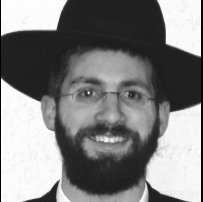More importantly, as we mentioned last week, the child who is victimized is usually perceived by his peers as one who is apart from the group and less deserving of respect. The child, nebach,suffers, feeling like a complete outcast. Therefore, our foremost objective should be to build this child’s esteem in his own eyes and the eyes of his peers, finding a way to include him or her. How can we accomplish this feat?
The child who has social issues is very often challenging to deal with not only for his fellow classmates, but for his teachers and principal as well. If they become annoyed or frustrated by his behavior in front of other children, it is harmful to the child’s image. Inadvertently, the child is being bullied by his teacher. Even children can sense when their friend is being singled out and picked on and will follow the lead. The teacher must find a way to truly embrace the child and see his positive qualities.
When the teacher appreciates the child and compliments him in front of his classmates, his esteem is automatically elevated in their eyes. They see him as deserving, rather than a complete outcast to society. Obviously, the teacher must use his discretion so that it looks natural and relate genuine and deserving praise.
The second thing a teacher can do to help the situation is build class spirit and identity. If the rebbi or teacher can create an atmosphere in which his or her students are proud to be the best sixth grade class, etc., then things can really change for the less popular children in the class.
How can a teacher accomplish this? Here are two suggestions.
1) Utilize the power of speech. If the teacher focuses on how proud he is of his amazing sixth graders, they will feel class pride. Especially if the rebbi or teacher is popular, they will happily rally behind him as a cohesive unit.
2) Create class activities and projects. If the sixth graders work together on various class projects or have special class rewards, they will feel a sense of honor and pride in their great sixth grade class. Their need for the participation of all their classmates towards their goal will foster a connection to each other.
When there is a strong group identity, each member of the group not only automatically feels that he belongs, but he recognizes that his fellow member also belongs. We have thus accomplished two great things. Number one, the child who is a “little different” feels good and included, and number two, his peers will view him as part of their group. They subconsciously know that when they victimize their classmate, they are insulting themselves in the process. Their six grade class is not as prestigious if one of its members is a failure.
Certainly, this is helpful on a broader scale as well. A menahel ormenaheles should look to cultivate achdus in their institution. Each student should feel proud to be a part of his school. This strengthens the image the child has of himself and his fellow students.
I once heard a nice suggestion of hanging up pictures of students all around the school. The unspoken message conveyed is, “You are important. You are valued here. You belong.”
In general, yeshivos where all the children are built up and given positive feelings about themselves will have far more success – and far less bullying.
This article was written in honor of a distinguished alumnus and a passionate ben Torah, Moshe Koff.
– – – – –
Rabbi Kestenbaum is the author of the seforim “Olam Hamiddos,” “Olam Ha’avodah” and “Run After the Right Kavod.” Shiurim from Rabbi Kestenbaum are available for free online at waterburyyeshiva.org.








